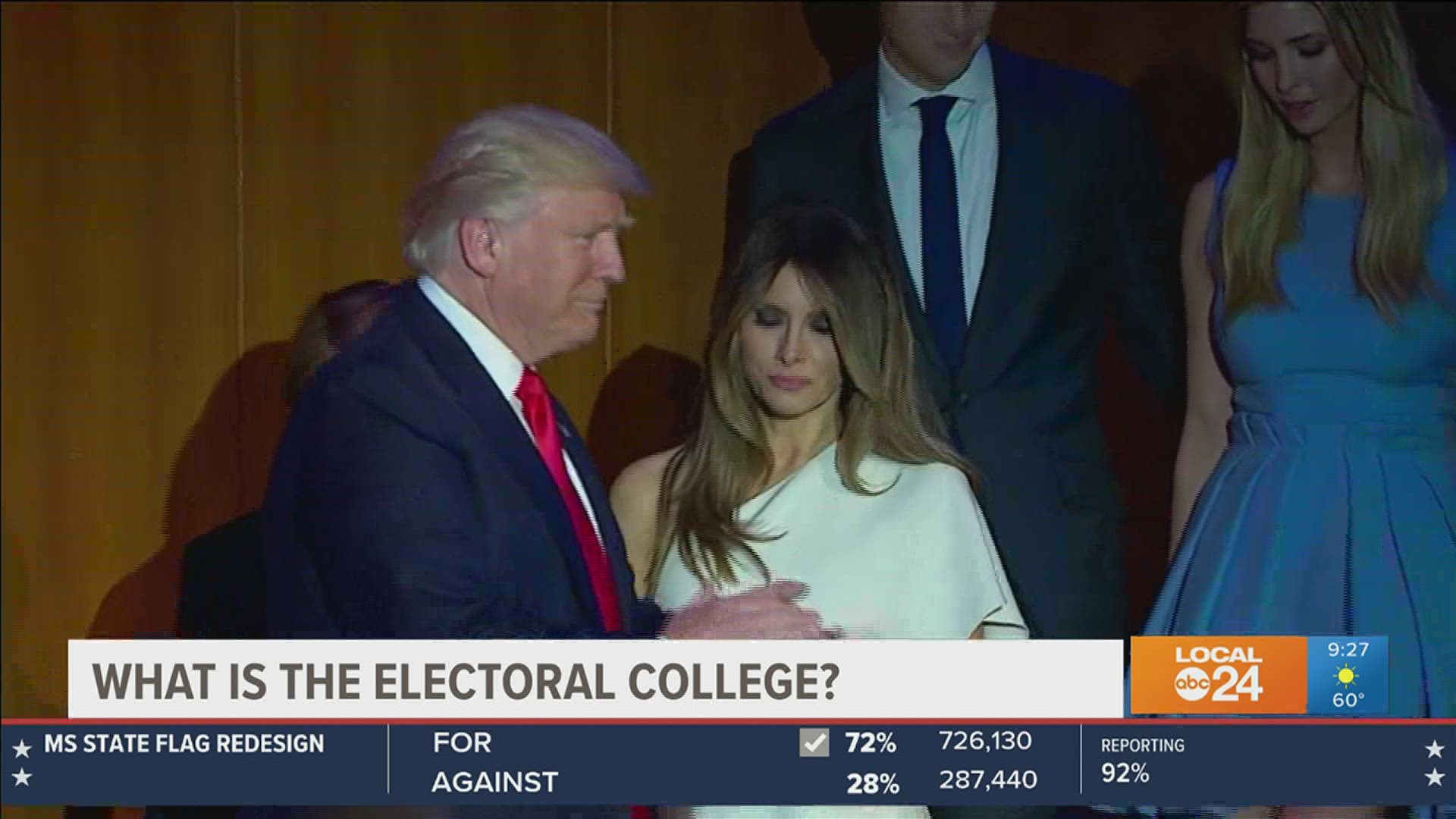MEMPHIS, Tenn. — It’s been around since the framing of our democracy. The Electoral College and its legitimacy is a recurring theme throughout election coverage.
For those who are unfamiliar, it’s that group of 538 people that selects the President and Vice President.
Electors are not elected senators or representatives according to the U.S. Constitution. These are outside people who are appointed to elect the President, and the process is far from easy.
It happens after each party in every state picks out their potential electors, so both Democrats and Republicans.
Next, during the general election, November 3rd of this year, “we the people” cast our ballots and choose those predetermined electors.
Steve Mulroy, a professor of law at the University of Memphis said it's not a perfectly democratic system.
He said, "It's a relic from historical times, the founding of the country. It was trying to protect small states and slave-holding states and actually serve as an aristocratic check on the passions of the mob. Nowadays, we tend to expect that our vote will, in fact, count.”
To enforce that your vote counts, earlier this year in Chiafalo v. Washington, the Supreme Court ruled unanimously that states can punish those electors that fail to complete their promise.
In fact, those states can opt to replace electors.
A fixture in the Constitution, the electoral system has since evolved to become more representative than it has been historically.
Remember, once we are able to certify election results, and all of this is over, then each state and Washington D.C. will appoint electors to officially vote which usually happens in December.


